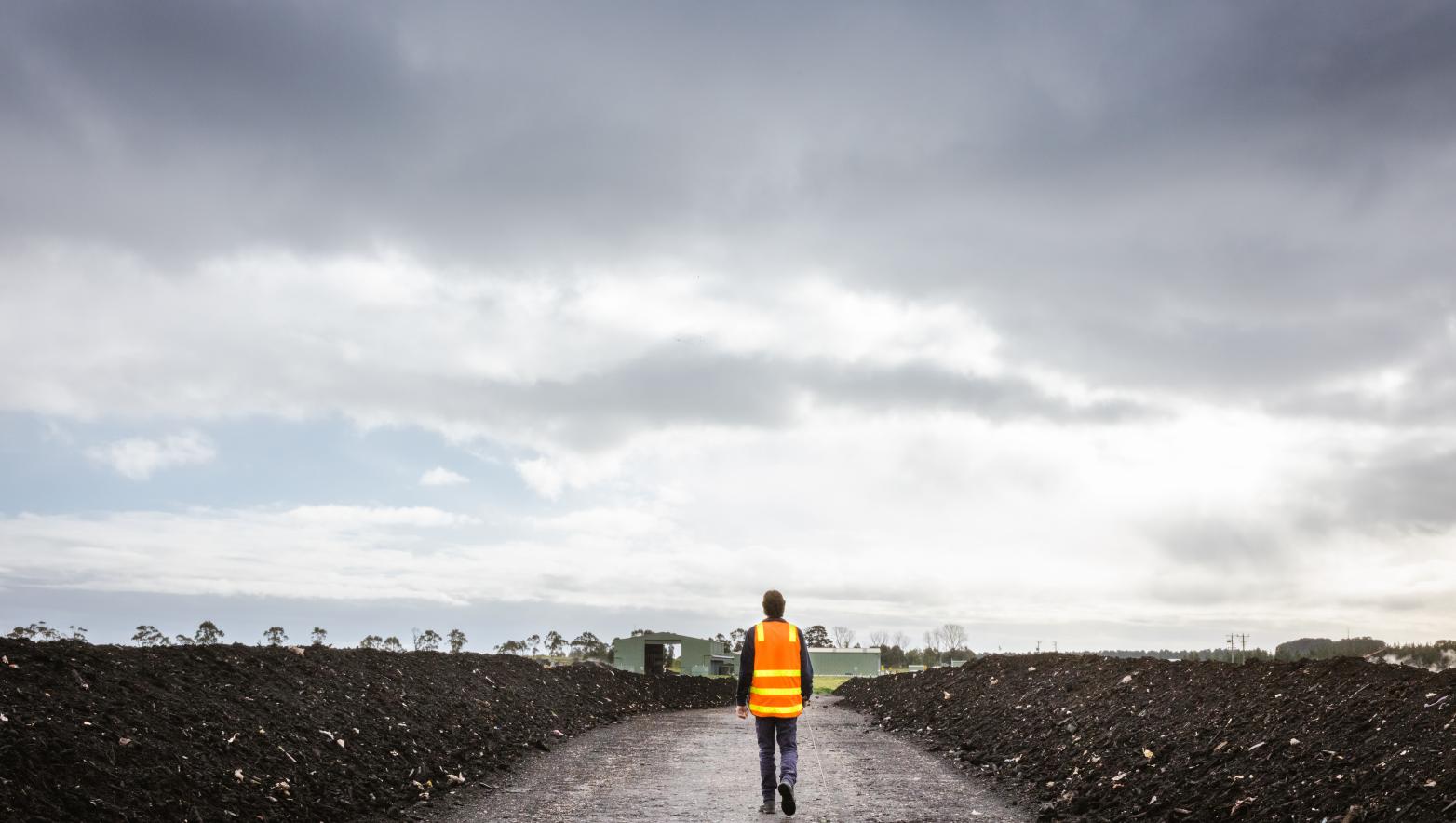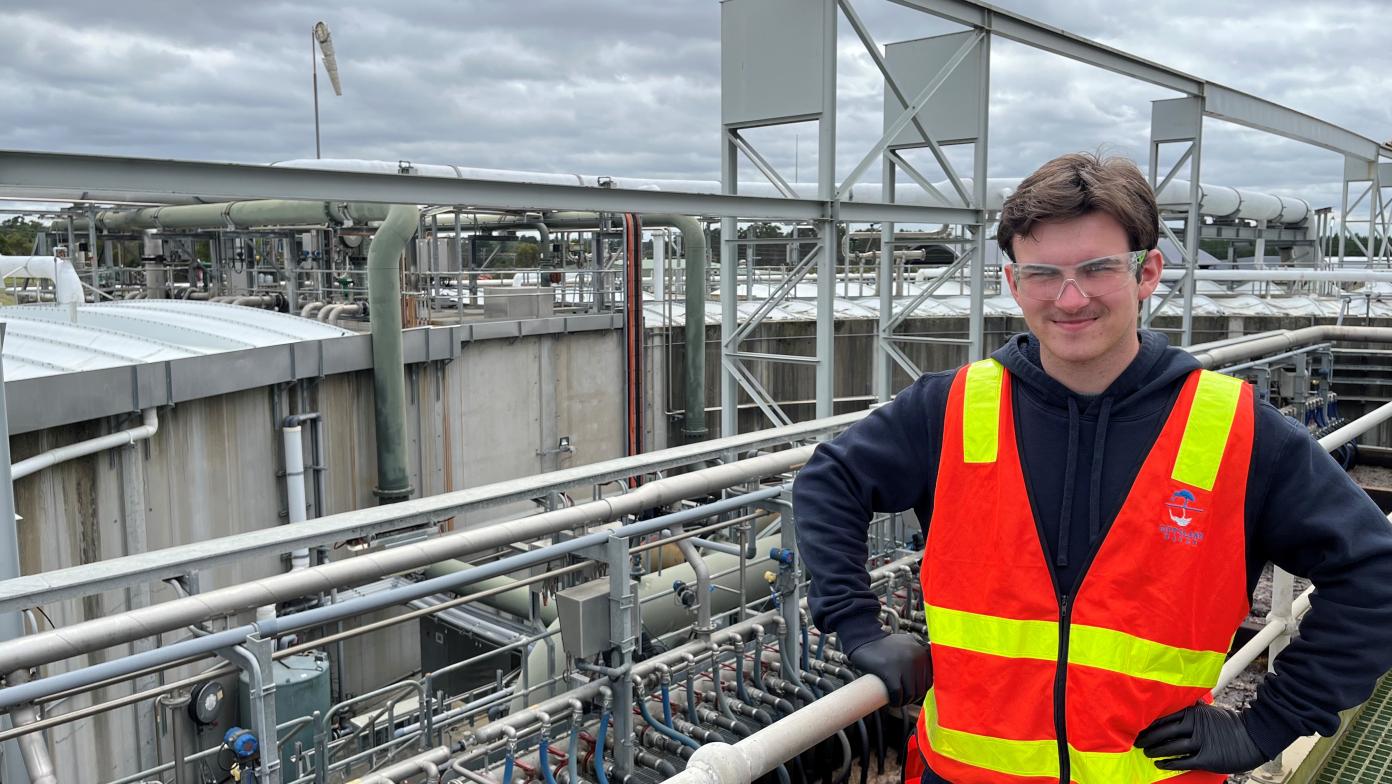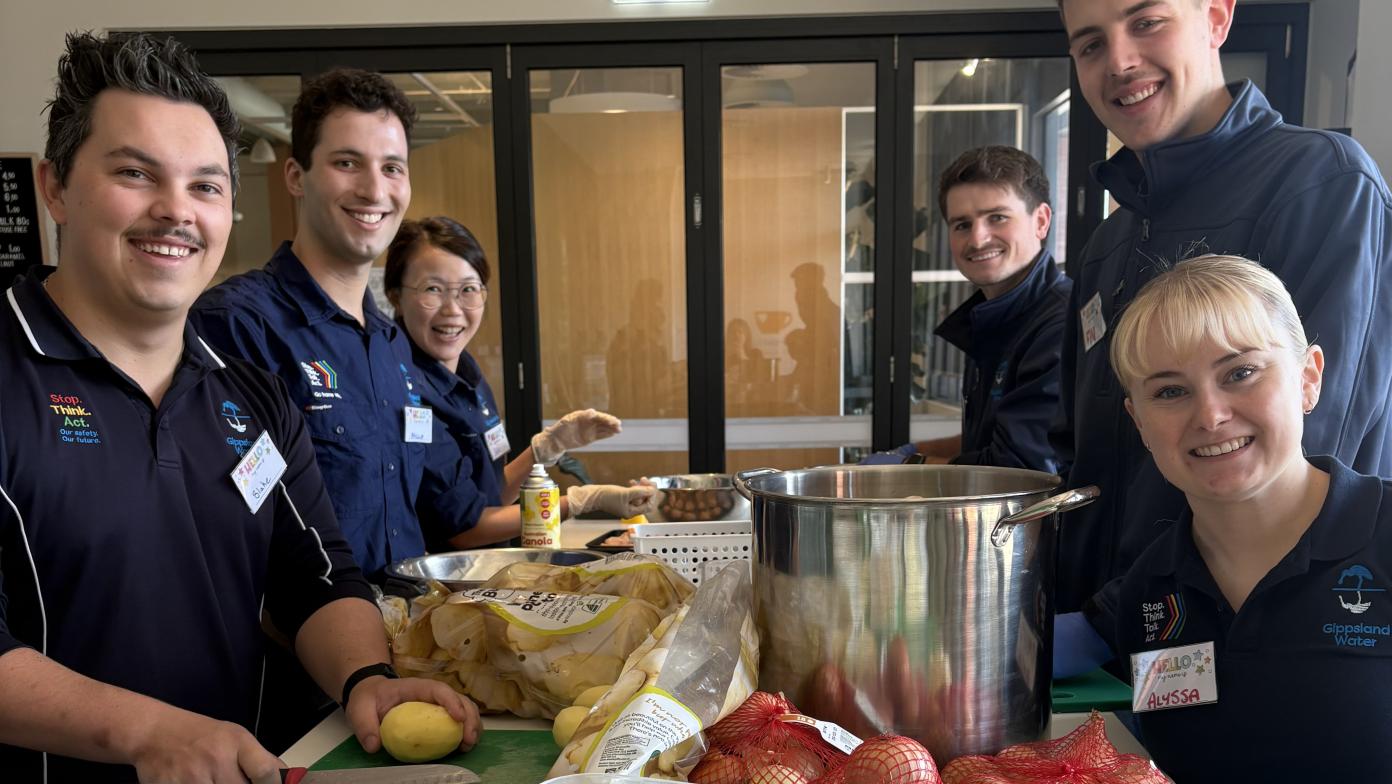Sludge paves the way for sustainable construction

Gippsland Water is exploring an innovative way to make gravel pavement construction more sustainable.
The study involves mixing alum sludge, a by-product of the water treatment process, with a traditional gravel to create pavements with a lower carbon footprint.
Alum sludge is a mixture of dirt, debris, and aluminium sulphate (alum), a chemical used to bind unwanted particles together so they can be removed from drinking water.
Managing director Sarah Cumming said findings of initial studies had been promising, however there was still more work to do before any gravel pavement could be constructed.
"Our first step was to engage the National Transport Research Organisation (NTRO) to determine whether a mixture of alum sludge and gravel could bare the weight of the vehicles and machinery,” Ms Cumming said.
“The study indicated the mixture can bear the same amount of weight as traditional pavement, but there is more work to do before we can test it outside a laboratory.”
The next stages involve investigating the impact, if any, alum sludge could have on the environment if it was used to create pavements.
Ms Cumming said that if the next stages of investigation were successful, the organisation would share its findings within the water sector and other industries.
“If we were able to repurpose alum sludge it would help divert it away from landfill and reduce the overall carbon footprint of pavement production,” Ms Cumming said.
“Gippsland Regional Organics and Gippsland Regional Agribusiness, our organics recycling and farming businesses located at Dutson Downs, need consistent road maintenance due to year-round heavy truck and machinery traffic.
“We’ll be looking to try out the new pavement out there first, before looking at expanding its use in other operational areas.
“We’re hopeful our findings could have much larger implications on a national and even international scale.”
To find out more about Gippsland Regional Organics, visit www.gippswater.com.au/gippsland-regional-organics.


